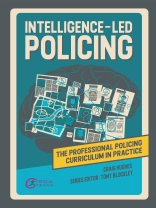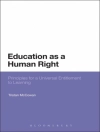Intelligence-led Policing clearly explains the distinction between information and intelligence, and discusses how to gather, analyse and utilise intelligence to inform decision making in practice.
It relates all areas of intelligence within the investigative process and contextualises its use in line with the National Intelligence Model (NIM) as part of routine working practice. It develops a knowledge base by identifying six tiers of policing intelligence architecture, exploring the concept of intelligence as it applies to strategic, tactical and practice levels of operational policing. A great mix of theory and practice to help students explore how information can become useful intelligence including the process through which it goes and the importance of intervention points.
The Professional Policing Curriculum in Practice is a new series of books that match the requirements of the new pre-join policing qualifications. The texts reflect modern policing, are up-to-date and relevant, and grounded in practice. They reflect the challenges faced by new students, linking theory to real-life operational practice, while addressing critical thinking and other academic skills needed for degree-level study.
Jadual kandungan
Chapter 1: Information and intelligence
Chapter 2: Legislation and intelligence gathering
Chapter 3: Intelligence-led policing and the National Intelligence Model
Chapter 4: Intelligence pathways
Chapter 5: Intelligence analysis
Chapter 6: Information management, other agencies and individual rights
Mengenai Pengarang
Tony Blockley has served within policing for over 30 years, gaining extensive knowledge and understanding of policing organisation and practice. On retirement he had attained the rank of Chief Superintendent with the position of Head of Crime, responsible for leading 500+ multi-disciplinary staff within a complex and critical department servicing public protection, major and serious crime, serious and organised crime, terrorism, financial crime, fraud and forensic services.
As the lead for policing at Leeds Trinity University he is responsible for co-ordinating policing higher education, including developing programmes and enhancing current provision in line with the Police Education Qualification Framework (PEQF) while also supporting the College of Policing in the development of programmes.
He combines an extensive policing career with an understanding of the national curriculum, the requirements of the academic standards and the entry routes to policing, giving him a unique perspective and the necessary credibility to support his role as Editor of Critical Publishing’s new policing series.





![perlindungan daripada Sarah B. B. (University of Central Florida, Orlando, FL, USA) Bush & Kristin L. L. (Bellarmine University, USA) Cook: Simplifying STEM [6-12] perlindungan daripada Sarah B. B. (University of Central Florida, Orlando, FL, USA) Bush & Kristin L. L. (Bellarmine University, USA) Cook: Simplifying STEM [6-12]](https://static.worldofdigitals.com/thumb_webp/414/9781071932414.webp)






